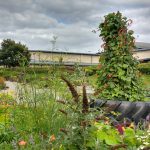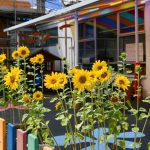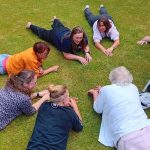Combining outdoor play and physical development
Physical Activity and Attainment
Instead of classroom-based learning, children should have the option to enjoy the outdoors and local green spaces. Not only does this help them to appreciate the biodiversity of the natural world, but they can continue to develop their physical abilities and personal attainments.

Do you want to find out more?
Then take a look at who makes up our Advisory Boards, Trustees and Governors.
Then take a look at who makes up our Advisory Boards, Trustees and Governors.
Image Source: Malcolm Cochrane
Improving Academic Performance of School-Age Children by Physical Activity
Mathematics and reading scores of 8 and 9 year olds who participated in a study that combined physical activities with learning activities (physically active academic lessons) were significantly higher in comparison to children who attended regular classroom lessons.
Mullender-Wijnsma, Hartman et al (2014)
Physical Activity for Children and Young People
Regular participation in physical activity is associated with improved social skills, integration into peer groups and extending social networks for young people. It is also associated with reduced anxiety and improved self-esteem in young people with a greater effect for children with perceptual, emotional and learning disabilities.
British Heart Foundation (2014)
Evaluating the Effects of the Lunchtime Enjoyment Activity and Play (LEAP)
Examining the effects of providing moveable/recyclable materials in a school playground intervention over a school year suggested that the introduction of movable/recycled materials can have a significant, positive long-term intervention effect on children’s physical activity and quality of life.
Hyndman, Benson et al (2014)
Examining the Impact of Integrating Physical Activity on Fluid Intelligence and Academic Performance in an Elementary School Setting
Evidence from this study indicates that integrating movement in the classroom 3 days per week for an average of 90 minutes total per week can enhance fluid intelligence and select academic achievement scores of elementary-age children.
Reed, Epstein et al (2010)
Physical Education, School Physical Activity, School Sports and Academic Performance
Increased free school physical activity can be added to the school curriculum by taking time from other subjects without risk of hindering student academic achievement. However, adding time to “academic” or “curricular” subjects by taking time from physical education programmes does not enhance grades in these subjects and may be detrimental to health.






